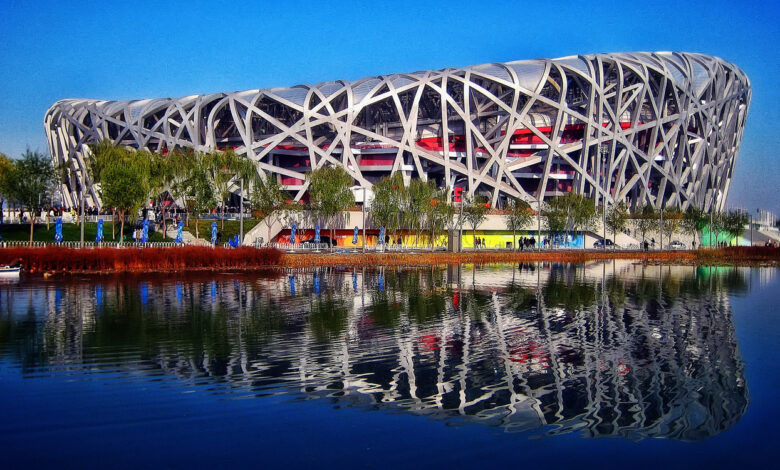A Diplomatic Boycott of the Beijing Olympics Does Not Go Far Enough

On Monday, the Biden Administration announced that it will be boycotting the winter Olympics in Beijing, at least diplomatically. Functionally, this would allow American athletes to continue to compete while American officials would abstain from attending. This comes after weeks of consideration within the Administration and on the heels of the Women’s Tennis Association’s suspension of all upcoming tournaments planned in China due to China’s treatment of Peng Shuai. Peng is a Chinese female tennis star, who accused former Vice Premier Zhang Gaoli of coercing her into sex. Following the allegation Peng was disappeared for weeks. Separately, President Biden released a plan to combat corruption which this administration views as a central national security threat. In order to truly combat corruption and stand up for human rights, the President should go further and fully boycott the Olympics.
China’s human rights abuses are so numerous that it is impossible to list them all here. However, it is worth noting a few. China has been holding more than one million Uyghurs in reeducation camps with reports of forced sterilizations and forced labor. In 2020, a new national security law went into effect functionally ending the “one country two systems” agreement which provided Hong Kongers democracy and freedom of speech and thought. Peng Shuai’s #MeToo story is just one in a long stream of women silenced for speaking out against sexual assault in China. Despite these abuses, American athletes still plan to travel to Beijing. For an administration that is supposed to be putting human rights first, this seems like a failure of moral vision.
The International Olympic Committee itself is riven with corruption. Just last week, Carlos Arthur Nuzman, the former head of the Brazilian Olympic Committee was convicted of bribery. That is to say nothing of the competitions themselves, which Russia proved were not as neutral a playing field as we had originally thought. The games never make money for the host city, lead to significant pollution, and promote the harassment of marginalized communities in the host cities. Furthermore, these negative externalities have created what amounts to a filtration system where authoritarian regimes are the most likely to submit a bid to host the games. The final two bids for the 2022 Olympics were from China and Kazakhstan.
Chinese Foreign Ministry spokesperson Zhao Lijian said that, “If the U.S. side is bent on going its own way, China will take firm countermeasures.” Of course, what firm countermeasures the Chinese government is considering remains unclear. However, what is clear is that there is very little that China could do to the United States that would appear to be at all proportional. That matters for China because an overreaction could mean pushing away potential partners that they need to expand their reach. Just this week, the Wall Street Journal reported that China is looking to have its first military base on the Atlantic Ocean in Equatorial Guinea. The Chinese government clearly has a lot more to lose in this fight than the United States.
Some may argue that Biden’s approach gives American athletes a chance to compete against the best in the world. Additionally, Americans could be an example to shine while simultaneously sending a message to China that human rights matter. Setting aside the fact that America holds a number of domestic competitions where the winners are crowned as world champions, American athletes’ presence at these games accomplishes nothing of geo-strategic value and provides a soft power bump to the Chinese.
However, there could also be a solution to this problem right in front of us. This week, President Biden is hosting a Democracy Summit with countries from around the world focusing on supporting the rule of law, human rights, and democracy during this time of backsliding. What better way to cement a coalition for fairness, equality, and human flourishing than with a new version of the games that actually respects these virtues? Some of the negative externalities of the games could be diminished by selecting a consistent host site and forming a new international institution to oversee the games which doesn’t build corruption into its core. American athletes could continue to compete with the best in the world without having to turn a blind eye to the human rights abuses happening just outside of the Olympic Village.
This approach also avoids the impact on American athletes affected by a full boycott. These athletes spend years training for their chance in the spotlight and for sports that are not typically shown on television, this is a make or break moment for endorsements, coaching opportunities, and more after the Olympics. A new version of the games would offer them the same opportunity. Additionally, it could also give voice to these athletes unlike the Olympics which has banned political speech making protests at the games very unlikely. These athletes deserve a field to compete that is not built on the back of repression.
The Biden Administration should be applauded for taking this first step and bringing a number of our allies along. China is clearly a human rights violator and this small and almost cost-free approach will have some positive impact. However, America could do much more than take its ball and go home. It could take this opportunity to truly put human rights first.
As part of our series of commentary and analysis pieces for members, we will periodically over pieces by our staff, podcast regulars and guests. The views presented are their own and do not represent the views of the DSR Network. This is one in that series.

